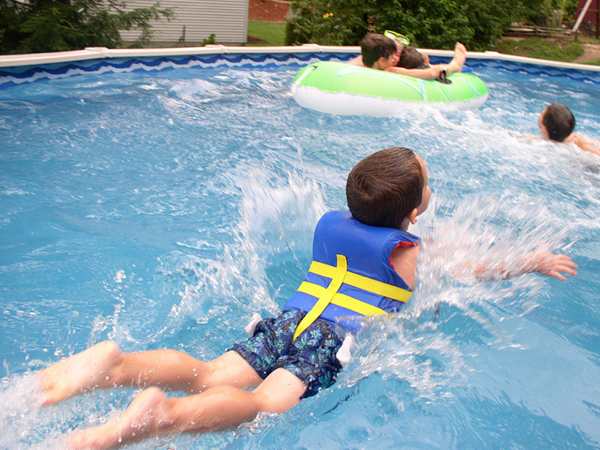Swimming pool safety tips

More than 3,500 people drown each year in the U.S., according to the Centers for Disease Control. Drowning is also one of the leading causes of unintentional death in children between the ages of 1 and 9. Many of these fatalities occur even with supervision.
“When warmer weather arrives, it’s great to beat the heat in a pool. But pool owners, and their family and friends, should be aware of basic pool safety tips to make sure swimming is safe and fun for everyone,” said Stacey McConnell, Vice President of Insurance at AAA Western and Central New York.
Have proper pool equipment
•Use a safety cover when your pool is not in use. Pool covers should tightly cover the entire pool so children or pets cannot slip underneath.
•Surround your pool with a fence or other barrier. The Consumer Product Safety Commission recommends securing your pool with a four-foot-high fence or barrier with a self-closing, self-latching gate.
•Keep your pool clean and clear, and keep children away from pool filters and other mechanical devices. The suction from these devices can injure a swimmer and even hold someone under water.
•Keep lifesaving equipment nearby. Life rings, floats, or a reaching pole should be easily accessible.
Learn and teach water safety skills
•Keep children under supervision at all times. Have inexperienced swimmers swim with an adult in the pool and wear a U.S. Coast Guard-approved vest.
•Limit alcohol use. The CDC reports that alcohol is involved in 70 percent of all teen and adult deaths associated with water recreation. Alcohol negatively impacts balance, coordination, and judgment. These effects are heightened by sun exposure and heat.
•Regularly check the pool area for any potential accident hazards. Glass bottles, toys, and electric devices, such as radios and fans, can pose tripping or electrical hazards.
•Don’t leave toys or floats in the pool when it’s not in use. Kids may fall into the pool trying to reach them.
•Take CPR and first aid training or refresh your training if it has been a while. Those trainings save lives every year.
•Contact your insurance company. Let your insurance agent know if you have a pool to make sure you have the right coverage.
Provided information





